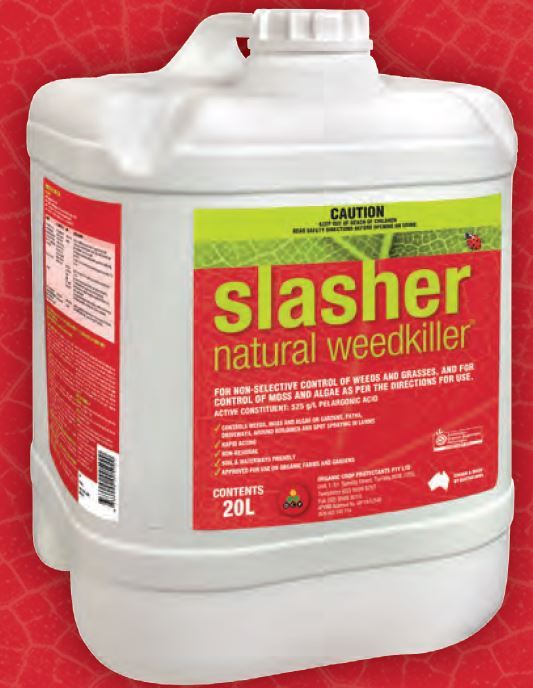Organic Weed Control Tips for Gardens: Your Eco-Friendly Guide

Gardening is a labor of love, but weeds? They're the uninvited guests that crash the party. They steal nutrients, water, and sunlight from your prized plants, turning your lush haven into a battleground. But before you reach for harsh chemicals, consider this: organic weed control is not just eco-friendly; it's also highly effective. So, are you ready to evict those pesky squatters naturally? Let's dive into some tips for organic weed control in gardens.
Understanding Weeds: The First Step in Organic Weed Management
Before you declare war on weeds, understand your enemy. Weeds are simply plants growing where they're not wanted. They're opportunistic, thriving in bare, uncultivated soil. Some are annual, living for just one growing season, while others are perennial, returning year after year. Knowing their lifecycle can help you target your organic weed control strategies more effectively.
Natural Weed Prevention: An Ounce of Prevention is Worth a Pound of Cure
Mulch: Your Garden's Best Friend
Mulch is like a protective blanket for your soil. It blocks sunlight, preventing weed seeds from germinating. It also retains moisture, regulates soil temperature, and adds organic matter as it breaks down. Straw, wood chips, and pine needles make excellent mulch. Just avoid hay, which can contain weed seeds.

Plant Cover Crops
Cover crops like clover, rye, and buckwheat act as living mulch. They outcompete weeds, improve soil health, and attract beneficial insects. Plus, they can be tilled under to add organic matter to your soil. It's a win-win!
Practice Close Planting
Planting your vegetables and flowers close together leaves less room for weeds to grow. It's like throwing a party and inviting only your favorite guests, leaving no room for crashers.
Organic Herbicides: When Prevention Isn't Enough
Sometimes, despite your best efforts, weeds still invade. That's when organic herbicides can help. Remember, even natural products can be harmful if misused, so always follow instructions.
Vinegar: More Than Just a Salad Dressing
Household vinegar contains acetic acid, which draws moisture out of plants. On a hot, sunny day, spraying vinegar on weeds can kill them. However, it's non-selective, meaning it'll kill any plant it touches, so apply carefully.
Corn Gluten Meal: A Natural Pre-Emergent Herbicide
Corn gluten meal prevents weed seeds from germinating. It's a byproduct of corn processing and is completely natural. Apply it to your garden in early spring for best results.
Garden Maintenance: Keeping Weeds at Bay
Regular garden maintenance is key to organic weed control. Think of it like housekeeping; a tidy garden is less inviting to weeds.
Regular Weeding
Hand-weeding is the simplest and most effective way to control weeds. It's like manually removing party crashers. Try to pull weeds when they're young, before they set seed. Remember, every weed you pull is thousands of potential weeds prevented.
Water Wisely
Water your plants deeply but infrequently. This encourages deep root growth and deprives weed seeds of the frequent shallow watering they need to germinate. It's like serving a meal only your invited guests can eat.
Eco-Friendly Gardening: Beyond Weed Control
Organic weed control is just one part of eco-friendly gardening. Composting, crop rotation, and encouraging beneficial insects all contribute to a healthy, weed-resistant garden.

Compost: Black Gold for Your Garden
Compost improves soil structure, adds nutrients, and encourages beneficial microorganisms. Healthy soil grows healthy plants, which are better equipped to outcompete weeds.
Crop Rotation: Keeping Your Garden Guessing
Rotating your crops each year helps prevent weeds that favor specific plants. It's like changing the party theme each year to confuse potential crashers.
Conclusion: Winning the War on Weeds, Naturally
Organic weed control is more than just avoiding chemicals. It's about understanding weeds, preventing their growth, and maintaining a healthy garden ecosystem. It's about working with nature, not against it. So, are you ready to reclaim your garden, naturally? Remember, every weed pulled is a victory, every cover crop sown is a step forward, and every beneficial insect welcomed is an ally gained. Happy gardening!
FAQs
Q: What is the best natural weed killer? A: The best natural weed killer depends on your specific needs. Vinegar is great for spot-treating existing weeds, while corn gluten meal is an excellent pre-emergent herbicide.
Q: How can I prevent weeds from growing in my garden? A: Mulching, planting cover crops, and close planting are all effective strategies for preventing weed growth.
Q: Is vinegar safe to use as a weed killer? A: Vinegar is safe to use as a weed killer, but it's non-selective, meaning it will kill any plant it comes into contact with. Always apply it carefully.
Q: What is the best way to remove weeds? A: Hand-weeding is the most effective way to remove weeds. Try to pull weeds when they're young, before they set seed.
Q: How does corn gluten meal prevent weeds? A: Corn gluten meal contains proteins that inhibit root formation in germinating weed seeds. It's a natural pre-emergent herbicide.
0 Response to "Organic Weed Control Tips for Gardens: Your Eco-Friendly Guide"
Post a Comment